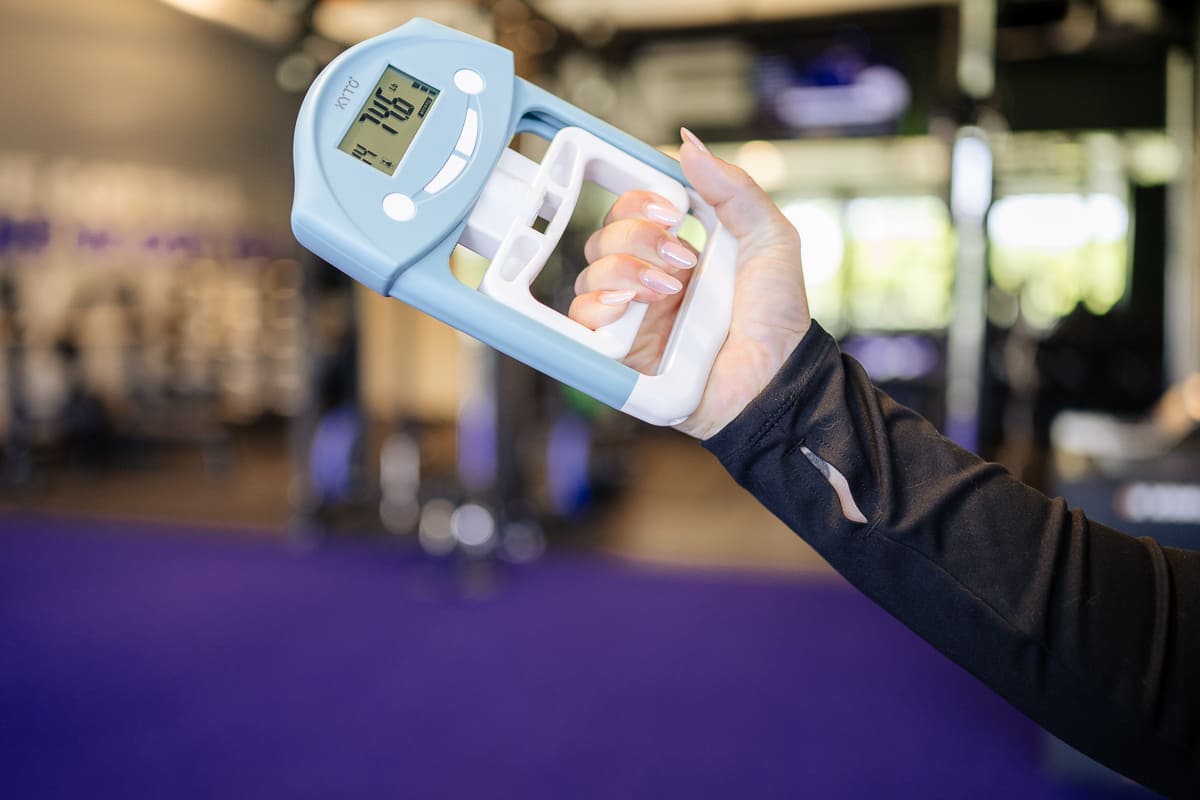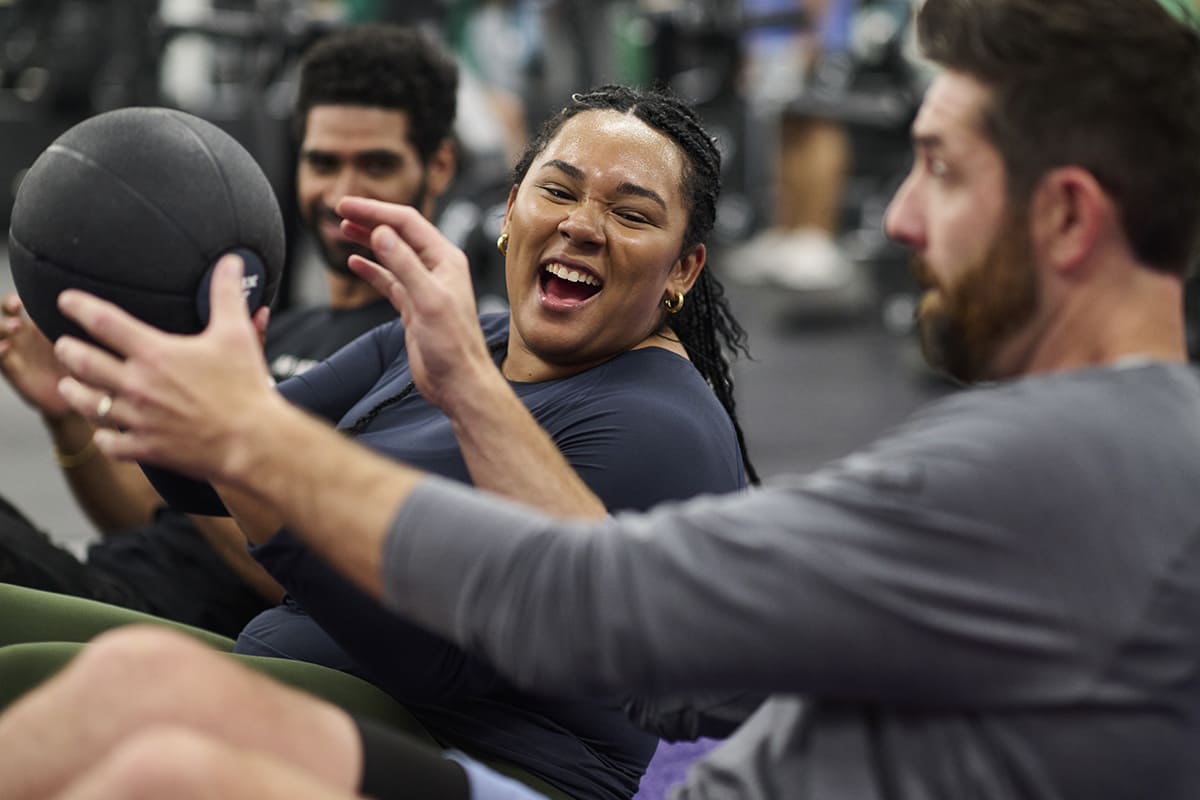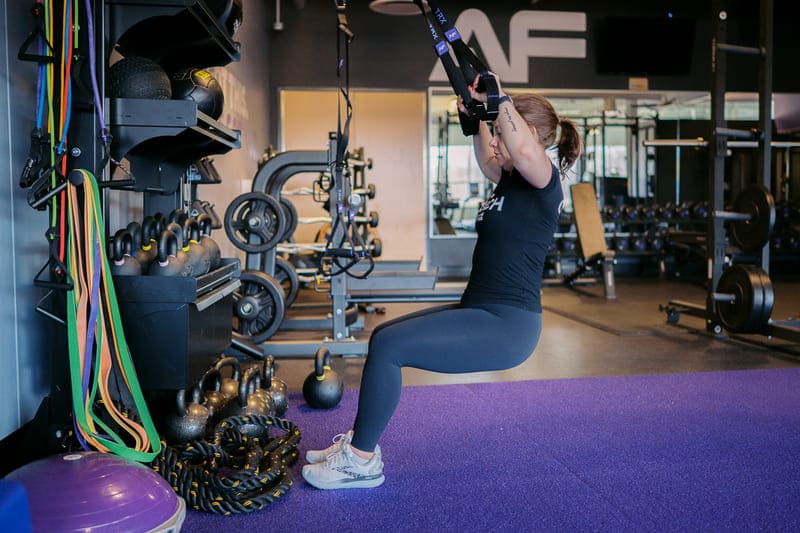Hitting a fitness goal is an amazing feeling — you worked hard, powered through setbacks, and proved you can do it. Well done!
Celebrating your exercise progress not only feels good, but also provides positive reinforcement, giving you an extra motivation boost. At the same time, we know that finding balance and moderation in treating yourself while trying to reach a wellness goal can be challenging.
That’s why we’re sharing tips for how to reward yourself for working out, including:
- Getting motivated by setting goals for working out
- Identifying ideas for exercise rewards that work for you
- Tracking healthy habits and progress
- Sticking with your reward system consistently over time
How to reward yourself for working out
It’s possible to reward yourself wisely and stay on track with your fitness goals. Here are our recommendations for rewarding progress.
Setting intentions: How to get motivated and make progress
Whether you’re heading back to the gym after taking a break, or you’re new in your fitness journey and joining for the very first time, building a consistent routine is key to making progress. (And if you already have a workout routine you love, revisiting what motivates you can be a helpful practice before setting a new goal.)
When you’re kicking off new fitness goals, the initial time frame is critical for self-motivation. While working out can have instant benefits, like a boost in mood or confidence, some exercise benefits take time to reveal themselves. Sticking with your workout even before you notice visible progress will help you get there. As a result, you’ll likely notice benefits like more energy, weight maintenance, stronger muscles, and an ability to deal with stress more easily over time. Before we feel the benefits of our workouts, some days finding motivation may be challenging. This is where exercise incentives can play an important role.

Using extrinsic motivation as part of your fitness rewards system
To stay on track and develop a steady habit of going to the gym, extrinsic factors can help you stay motivated. Extrinsic motivation means you’re drawn to do something because of an outcome, rather than wanting to do something for its own sake. Intrinsic motivation, on the other hand, is the desire to do something because you naturally want to.
Extrinsic motivation often means setting up a reward system that incentivizes you to clear the hurdle of going to the gym so that you can enjoy the reward you’ve set up for yourself. Identifying your hurdles (such as not having the time or energy) will help you know which shifts to make, like blocking time on your calendar or getting a good night’s sleep so you’re rested and ready to move your body.
You may not feel intrinsic motivation, the internal drive to move your body with a workout, right away. Don’t worry — this will come naturally as you make progress over time! Gradually, you’ll begin to know that it’s good for you and that you’ll be better for having done it, which makes it easier.
Unlock healthy habits by identifying fitness rewards you’ll truly look forward to
Effective rewards for working out should be extrinsically motivating to you. This means that the rewards need to outweigh the decision cost for completing the workout. To reach your workout goals, your reward should entice you to stick with your workout plan even when you don’t feel like it. For example, this might be treating yourself to a fun class you’re interested in taking, so that each time you work out you know you’re one step closer to making that a reality. Take some time to think to yourself, “What would convince me to dedicate one hour of my schedule to working out instead of doing another activity?”
A good fitness rewards system will reward for each instance of a workout, but also have a larger reward when achieving a longer-term goal, such as maintaining workout consistency for one month or more. To make each workout feel like one step closer to your reward, use a notebook or calendar to check off each gym visit. This will help you see how much progress you’re making, even when you take breaks or skip days.
Ways to reward yourself for reaching fitness goals during a workout
Here are a few more suggestions for fitness rewards and incentives for working out to keep you motivated:
- Only drink your favorite sports drink when you work out.
- Get new gym clothes or shoes, but commit to only wearing them while working out.
- Curate a playlist of your most loved, meaningful songs and play that playlist only during your workout.
- Create a regular workout schedule with a friend to hold each other accountable.
- Get curious about which workouts feel interesting and energizing to you, and add variety to your gym routine.
- Take short breaks throughout your workout (as needed) and remember you’re investing in yourself.

How do fitness goals play a role in this process?
Fitness goals that are action-oriented will help you reach goals that are outcome-based. To know what the best fitness goals are for you, think about your desired outcome. Then, take a backward-planning approach to set action-based goals to help you achieve the outcome.
This is where a fitness professional such as an Anytime Fitness Coach can help. With knowledge around evidence-based best practices for achieving various physiological outcomes such as muscle gain, weight loss, or improved performance, a Coach can recommend a training, nutrition, and recovery plan for you based on where you’re at now and where you’d like to progress to. If you’re going to set goals by yourself, prepare to hold yourself accountable to timelines and provide yourself positive reinforcement when you’re hitting your marks. This is where a good rewards system can come into play.
How can I choose realistic fitness goals to stay on track?
There are plenty of fitness goals out there — one of the most common that Coaches encounter with clients is, “I want to lose weight.” This is an example of an outcome-based goal that doesn’t lay out a plan for how to achieve weight loss, but instead only focuses on the desired outcome. Instead of setting an outcome-based goal, we recommend you set an action-oriented goal. This is a goal you can control because it says what you’ll do and when you’ll do it — for example, this could be walking on the treadmill every Monday evening for one hour. It’s also supported by details including the workout plan, how will you reward yourself for going, and what will your backup plan be if you need to reschedule your workout.

More exercise rewards to try
Rewarding yourself for working out can look different for each person. Some need constant positive reinforcement while others may only need a weekly or monthly fitness reward. Finding out what is best for you is part of the journey.
Make sure the reward you choose is in alignment with your overall goals and beliefs and makes you feel good! For example, if time with your family is something you highly value, maybe you consider your family as part of your reward, such as, “I will allow myself time to watch 10 extra minutes of TV with my family on days I work out.”
Another example would be someone that values having a clean car as well as working out regularly. Pair your car wash with your workout and boom: you have yourself a fitness rewards system! This could be, “When I go to the gym three times per week or more, I go to the car wash and get the works.”
Create consistency with your rewards for working out
Many rewards from working out come naturally, like more energy, better sleep, and better overall health. Sometimes it can take a little bit of self-talk to get motivated to get to the gym in the short term and realize those benefits in the long term. For some, having a fitness rewards system to help with motivation is a strategy that can make habit-building a bit easier.
More tips for building motivation and reaching new fitness goals
- Simple Steps: 7 Benefits of Walking Every Day
- How I Transformed My Life: Candie’s Story
- Is It Better to Work Out in the Morning or at Night?
We love helping you progress through every step of your fitness journey! Stay challenged and get even more support with personalized, one-on-one training.




